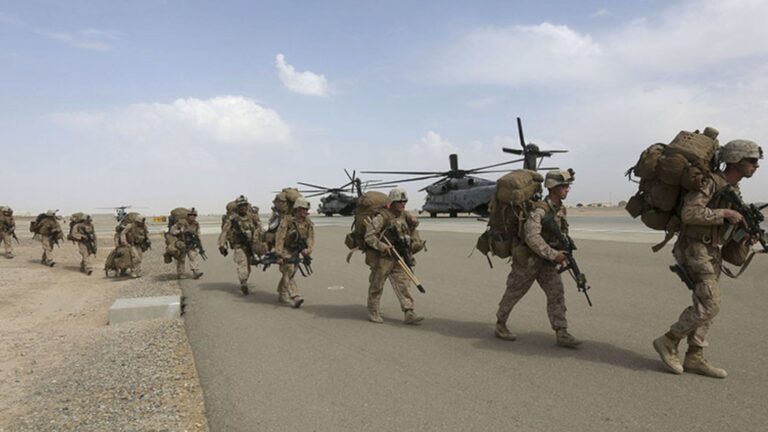The Taliban’s Central Committee for Security and Liquidation Affairs, part of Afghanistan’s Ministry of Defense, in its recent annual report named Pakistan for its role in destabilizing Afghanistan and enabling regional terrorism in the country. did.
The report, released on January 22 after an annual meeting chaired by the Taliban’s deputy defense minister Mohammad Yacob Mujahid, said Pakistan is promoting anti-Afghan terrorism and threatening the internal security situation in Afghanistan through terrorism and drug trafficking. expressed serious concerns that the country is destabilizing the country.
The Central Committee for Security and Clearing Affairs is an important part of the Taliban’s security apparatus and focuses on managing internal and external security concerns. Its functions include managing national security, gathering intelligence, counter-terrorism operations, and eliminating various security threats. It functions under the Ministry of Defense.
The findings, shared with the Sunday Guardian, were released days after Indian diplomats held the first such initiative’s meeting with Taliban leaders and ministers in Kabul in November.
According to the Ministry of Defense’s findings, chemicals used in drug processing are smuggled into Afghanistan from “neighboring” countries, including Pakistan, using a variety of deceptive methods. Of particular note are areas adjacent to the Af-PAk border, including Alanai, Loralai, and Gulistan in Pakistan’s Balochistan province, where the Taliban report that opium is extensively cultivated.
Research shows that Afghan refugees are employed as laborers, farmers, and opium processors in these areas, which are hubs for the illicit drug trade that affects all of South Asia. Afghanistan is often falsely accused of promoting drugs.
The Taliban said these drug operations, which are primarily carried out in Pakistan, were deliberately carried out by Afghanistan with the aim of tarnishing the country’s image and undermining anti-drug efforts.
The Taliban also found that Pakistan was tacitly supporting terrorist groups by harboring and regrouping them in tribal areas. The report said these terrorists are receiving support in the form of training camps, fundraising facilities and recruitment drives in Balochistan and Khyber Pakhtankhwa provinces.
The Taliban claimed that these groups, which were previously suppressed within Afghanistan, were evacuated to these areas with the approval of Pakistani authorities. According to reports, reliable information suggests that these terrorists are being sent to Pakistan via Karachi and Islamabad airports and are planning future attacks in Afghanistan and potentially other regions as well. It is said that there is.
The Taliban has stated that many attacks carried out by these terrorist organizations in Afghanistan have been thwarted over the past year, but continued attacks from neighboring countries are being provided by these external efforts to destabilize Afghanistan. We are very concerned about external support. A system introduced in Afghanistan.
Further elaborating on Pakistan’s role in the region, the Taliban claimed that many of the perpetrators of attacks inside Afghanistan are foreigners, with a significant number of Pakistani origin. These attackers are said to have entered Afghanistan under various guises and carried out violent activities. The report also highlights that most of the attacks were planned and launched from outside Afghanistan, particularly from Pakistan.
According to the report, these terrorist groups are actively working to deter foreign investment, disrupt Afghanistan’s economic growth, and further exacerbate the country’s struggle for stability and prosperity. That’s what it means.
The Sunday Guardian reported on December 15 that a suicide bombing near a mosque on the ministry’s premises in a high-security area of Kabul killed Khalil-ur-Rehman Haqqani, Afghan Minister of Refugees and Repatriation, and four other people. Reported on how he was assassinated by a suicide bomber. It could derail the Taliban and Kabul’s plans to attract foreign investors and project an image of stability. (High-profile murders in Kabul threaten Taliban investment aspirations)
According to a report by the Central Committee for Security and Liquidation Affairs, the Afghan government has strengthened border security, especially along the Durand Line that separates Afghanistan and Pakistan, and is spending millions of dollars to prevent the influx of terrorists and drugs. He said he is making an investment. Strengthen security infrastructure, including building outposts, watchtowers, and fortifications.
The report says these efforts have met with fierce resistance from the Pakistani military, which does not want to fence its borders.


